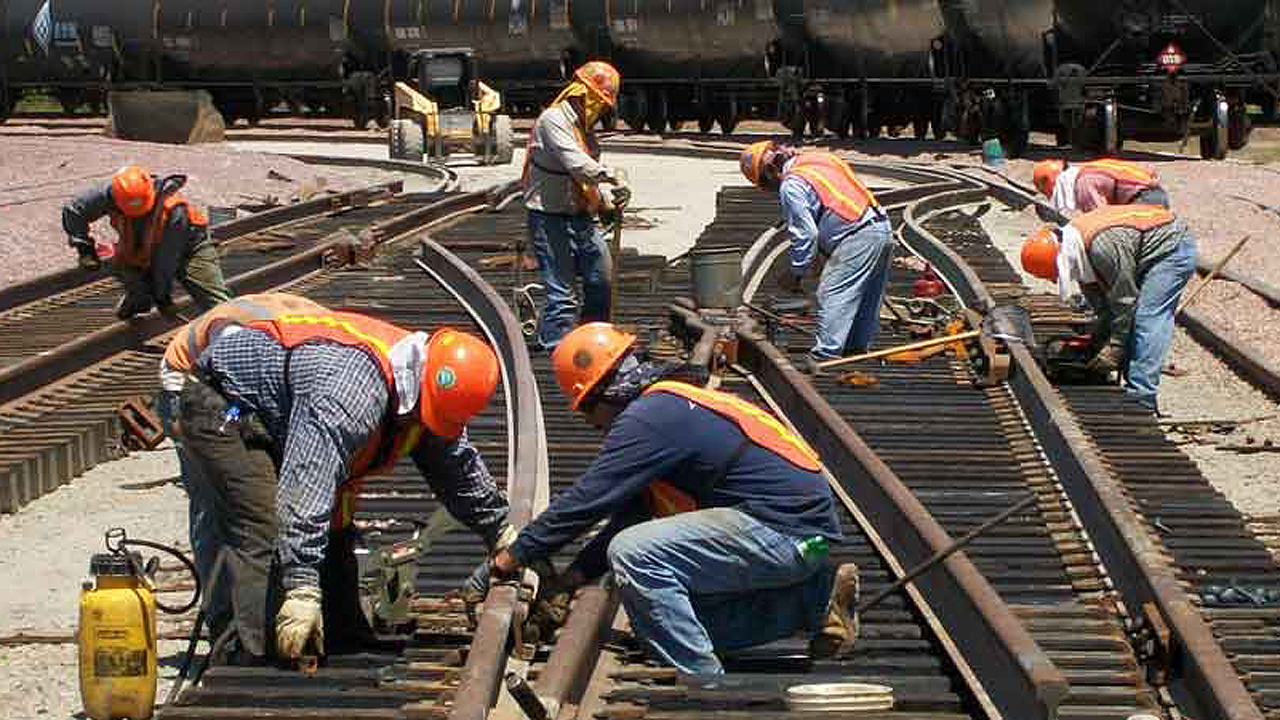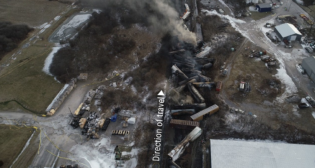
Railroads to NMB: Keep Labor in Mediation
Written by Frank N. Wilner, Capitol Hill Contributing Editor
The nation’s railroads today asked the National Mediation Board (NMB) to keep at the bargaining table the dozen unions with which they are negotiating wage, benefits and work rules amendments to national labor contracts.
Two of those unions had petitioned the NMB to declare a bargaining impasse, with the other 10, which bargain under a second coalition, signaling they will soon file a similar petition.
Were the NMB to declare a bargaining impasse, it could open the door to a nationwide rail work stoppage in late spring or early summer at the same time the American economy struggles with a supply chain crisis and escalating global military hostilities. Dating to the Civil War, railroads perform a vital military supply role.
The two unions asking an impasse be declared are the Brotherhood of Maintenance of Way Employes Division of the Teamsters Union (BMWED) and the Mechanical Division of the International Association of Sheet Metal, Air, Rail and Transportation Workers (SMART-MD).
The Railway Labor Act (RLA), which governs labor-management relations in the railroad and airline industries, has as a core objective avoiding interruptions to interstate commerce. It instructs that parties in collective bargaining exert “every reasonable effort” to settle disputes peacefully. That is not occurring, the NMB was told by the National Carriers Conference Committee (NCCC), which represents rail carriers. In fact, there has been not one face-to-face bargaining session, in part owing to the Covid pandemic.
Although the sides exchanged demands for contract amendments in November 2019, and formal bargaining was to begin in January 2020, “for almost six months in 2020, the unions refused even to meet by video conference,” the NCCC told the NMB in its March 11 letter.
And since NMB guided mediation began with BMWED and SMART-MD in June 2021, they have “failed to respond meaningfully to the carriers’ counterproposals and other suggestions for moving the process forward,” the NCCC said. “As such, the parties have not yet come close to exhausting every reasonable effort to reach agreement” as required by the RLA. There is no timeline under the RLA for the completion of compulsory mediation.
As for the other 10 unions—bargaining with the carriers in a separate coalition that includes the Brotherhood of Locomotive Engineers and Trainmen (BLET) and the Transportation Division (conductors and other ground service workers) of SMART (SMART-TD)—they have yet to commence NMB guided mediation. These 10 unions represent 80% of the 115,000 unionized rail workers affected by the contract talks, while the BMWED and SMART-MD coalition represents the other 20%.
Unlike labor law affecting most other industries, the RLA provides that collectively bargained agreements never expire, but be periodically amended—as is the purpose of the current negotiations—with existing contract terms remaining in force. Amendments become retroactive.
Significantly, declaration by the NMB of a bargaining impasse starts a clock that can include creation of a White House-appointed Presidential Emergency Board to make non-binding recommendations for settlement. Further failure to reach a voluntary agreement can result in a work stoppage. As the RLA has, at that point, run its course, only Congress can send rail workers back to their jobs—as Congress did, and always has, within hours of a nationwide rail work stoppage.
Evidence of the RLA being a manual for labor-management peace—ensured through protracted NMB-guided mediation—is that there has not been a nationwide rail work stoppage since 1991, more than three decades ago.
Then, as has been the case historically, Congress acted within hours—and, also typically, on terms not favorable to labor. In 1991, with Democrats controlling the House and Senate, Congress voted overwhelmingly to end a strike, with one of labor’s staunchest supporters, Sen. Ted Kennedy (D-Mass.), defending his vote as “good for business, good for the economy and good for the nation.”
As for current negotiations, the NMB historically has resisted requests to declare an impasse during election years, as congressional lawmakers abhor making politically controversial votes while campaigning. Given current supply chain chaos and domestic economic and military uncertainties associated with the Russian invasion of Ukraine, it is highly unlikely the Biden Administration cares to be faced with the prospects of a nationwide rail shutdown.
The NMB is a three-member federal agency with two of the current members Democrats. Previous Democratic majorities on the NMB have held the parties in mediation during election years.

Capitol Hill Contributing Editor Frank N. Wilner is author of six books, among them Amtrak: Past, Present, Future; Understanding the Railway Labor Act; and Railroad Mergers: History, Analysis, Insight, all published by Simmons-Boardman Books. Publication of his seventh book, “Railroads & Economic Regulation,” is pending by Simmons-Boardman Books. Wilner earned undergraduate and graduate degrees in economics and labor relations from Virginia Tech. He has been Assistant Vice President, Policy at the Association of American Railroads; a White House appointed chief of staff at the Surface Transportation Board; and director of public relations for the United Transportation Union. He is a past president of the Association of Transportation Law Professionals. Wilner drafted the railroad section of the Heritage Foundation’s Mandate for Leadership (Volumes I and II), which were policy blueprints for the two Reagan Administrations; and was a guest columnist for the Cato Institute’s Regulation magazine.
FURTHER READING:
Labor Talks: A Headache But Never a Bore



